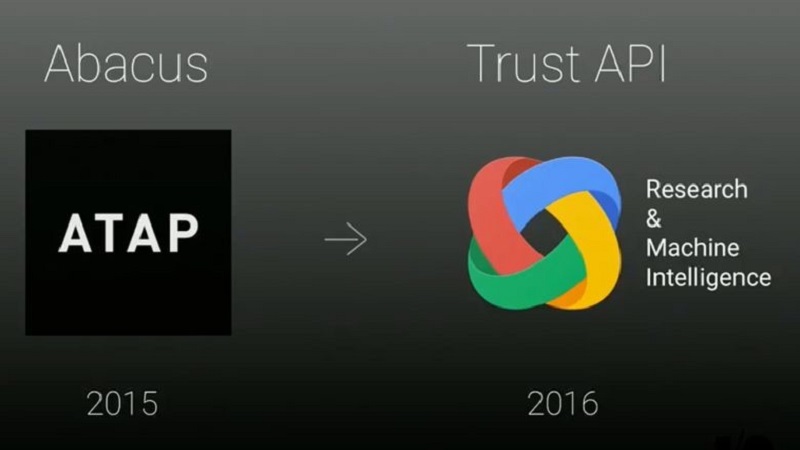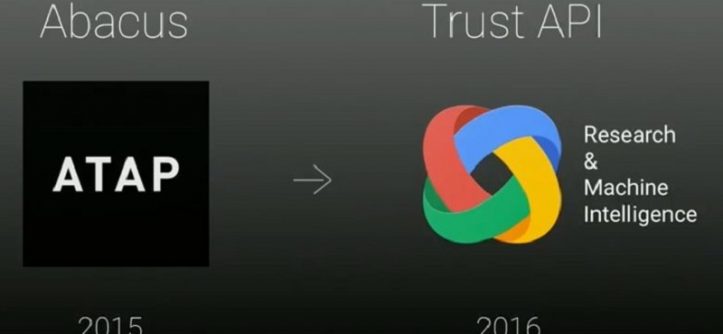Ah, passwords, as unlivable as irreplaceable. Or at least so far they seemed irreplaceable, because Google just launched an auto unlock multi-pattern for Android you want to replace those passwords with various biometric features.
In Google already they had long been working on the so – called Project Abacus, but has now evolved called Trust Score, an identification system that combines several biometric factors, but also behavioral and location. How it works which is called to be an interesting candidate for we can begin to forget passwords on Android devices.

Passwords dominate us
We live in a world where passwords are the mechanism most widespread security for all kinds of interactions with services and devices, but its popularity has also become the worst enemy of the system: the management of passwords has become a problem for millions of users, who come to “weak” variations include using guessable passwords or repeat the same password for multiple services.
That has caused a wave of attacks by experts in security good and bad have shown that passwords are not the ideal method in many cases: the theft of passwords for all services -the scandal LinkedIn is the case more recently they are already a constant, and there seems no short-term solution.
The password managers are a good alternative solution to have more guarantees in this regard, but even these systems are invulnerable. Many rely on verification systems in two steps to add another layer of security to this process, and certainly one of the most important to stay calmer options (something).
Google is one of the defenders of the latter system if you have not activated the two – step verification for your services please hallowed, but its engineers have long working on alternatives that make this method even stay, such as passwords, into oblivion.
Abacus Project to API Trust
When Project Abacus was launched it was with the idea of collecting behavioral data user: how typing, what applications used most, and what its signs of biometric identity (voice, facial recognition) were.
By collecting these data it was possible to generate a user profile that would identify and lock or unlock the device or certain functions through that information. Identify a user would no longer be a matter of a pattern or PIN: several -so many factors combine as demands – developers to try to certify that you are using the phone it is indeed who they say they.
Dan Kaufman, head of the ATAP unit Google (Advanced Technology and Projects), explained how our phones “have all these sensors in them. Why cannot know who I am no more, so you do not have to use a password? You should be able to work directly [with that device and thanks to that information]”.
What the new Trust Score system wants to achieve through the Trust API to which Project Abacus has evolved is theoretically simple: assign a ‘confidence coefficient “based on various parameters and this ratio is to be used in the device and its applications to validate any action you do.
Prove you are who you say you are being yourself
How would Trust Score? Easy: imagine you are in your home with your smartphone and want to start using it. Your Trust Score will be very high because, for starters, you’re in a location that the system recognizes as very frequently but can also take advantage of other biometric factors such as facial recognition or iris (to Windows Hello), your fingerprint (already it would not be necessary and sufficient to unlock) condition or a voice command.
The thing I would change if you holiday travel: the coefficient low because you’re in an unrecognized location, so you have to compensate for this factor more biometric checks or other elements that help to all this information add up and the device or service know that you are using.
These coefficients may be different depending on the scenario in which we want to use them. Open session in the Android application in the bank to make a transaction may require a confidence coefficient higher to log in Instagram, for example, it is where developers can determine what level of confidence we have to make, and how many factors involved making the device and the application or service identifies us and check that we are who we say we are.
Google said already evaluating system behavior in several financial institutions with strong and if all goes as expected later this year will provide the Trust API to developers. It was from that moment when we will see how the platform leverages a system that gradually passwords want to make something of the past. Will it succeed? The challenge is difficult, of course. Visit here http://rockemeet.com/ to know more like this article.
Tags: Google, passwords, technology, Trust Score




Leave a Reply